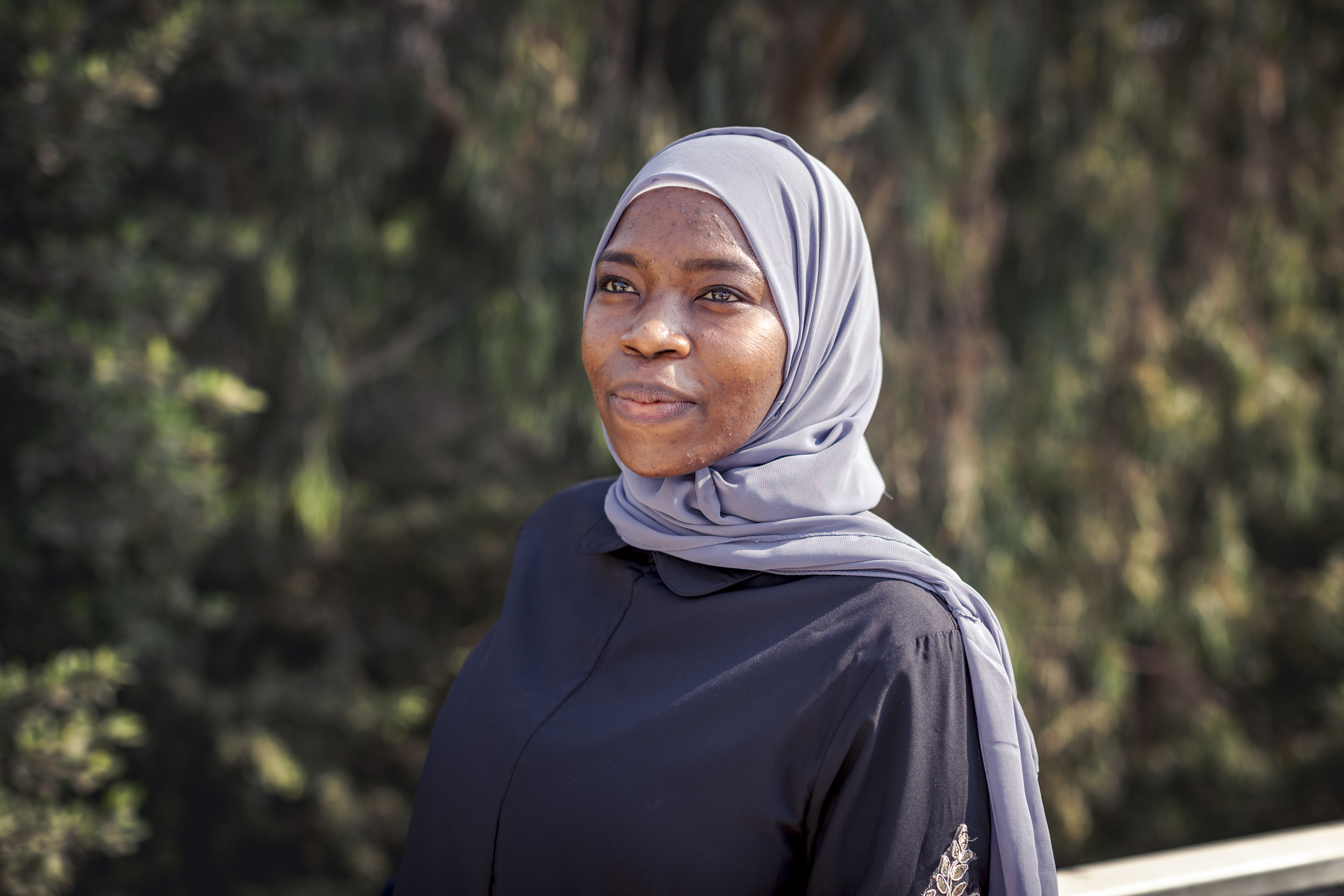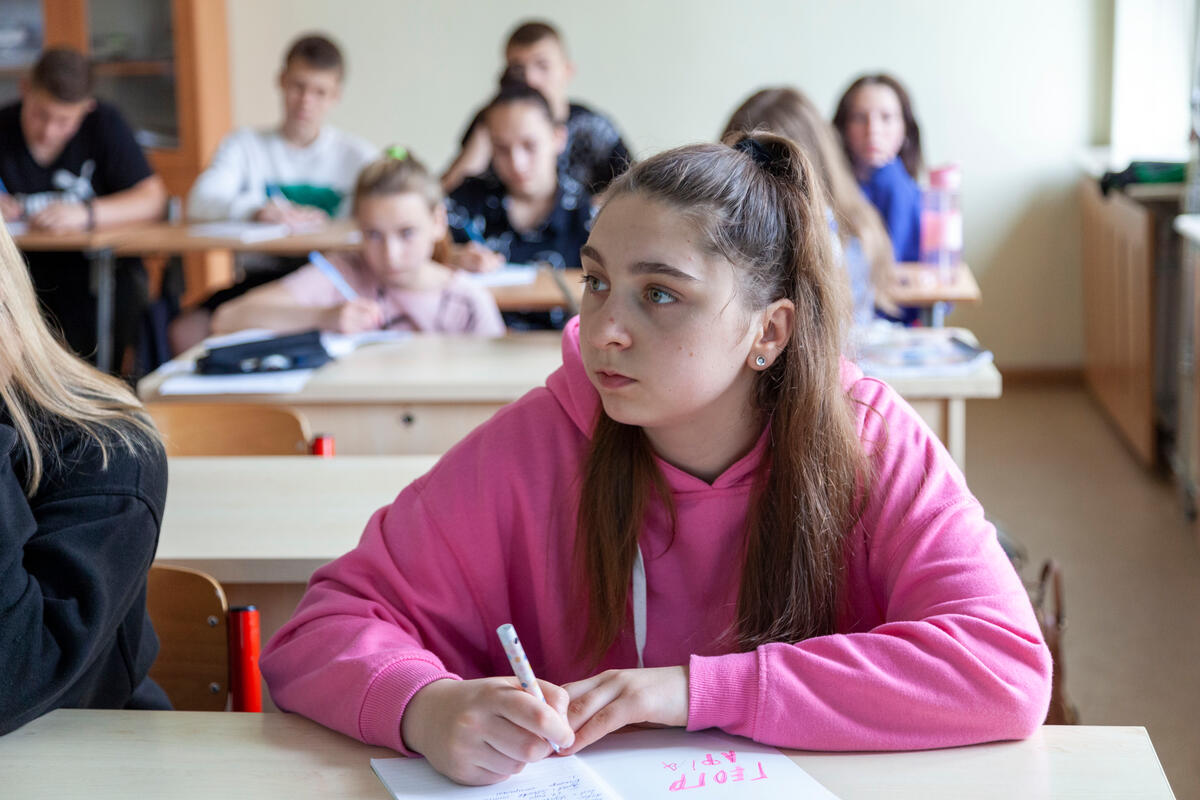Education helps young refugees in Jordan cope with exile and the past
Education helps young refugees in Jordan cope with exile and the past

AMMAN, Jordan, December 23 (UNHCR) - Omar* endured some hard and painful lessons about life at an early age. Now, the 13-year-old refugee is learning positive things at a school in the Jordanian capital, Amman, three years after fleeing Iraq with his five siblings.
A naturally shy boy, Omar's life started coming apart when his father, a policeman in Baghdad, was shot dead by militiamen. He remembers the news of his father's death coming as a great shock. "At that moment, we knew that staying in Baghdad was no longer possible," the boy recalled.
Next came the trauma of fleeing to neighbouring Jordan to join his mother, who had gone ahead to assess if they would be safe there. "I did not think these small children would be able to withstand the journey," said their Uncle Fahad,* who brought them over hidden in a taxi. "God gave us the strength to be silent and patient until we crossed into Jordan."
In Amman, they were safe, but the ordeal was not over. Omar's fearful mother fled to the United Kingdom, but she could not take the children, whose passports and ID papers were left behind in the dash from Baghdad. She is receiving counselling in the UK, and her predicament and absence is also very hard on Omar and his brothers and sisters.
Amid all these tough lessons in life, there has been one very important positive development for Omar and two of his brothers. Many of the young people forced to flee Iraq in recent years have had their education disrupted - some did not have the right papers, while others could not afford private schools.
In refugee camps, they would have access to at least primary education with the help of UNHCR and others. But accessing education in urban areas, where most of the Iraqi refugees live, is not so straightforward, especially for people with limited resources.
That was the case for Omar, who was unable to enrol in school on his arrival in Amman because he did not have legal residency. Uncle Fahad, who has been looking after the children while also working at a vegetable market, used to spend four hours a day teaching his two nieces and four nephews how to read and write. It was hardly enough, but he felt it was his duty.
But things soon changed, thanks to the generosity and solidarity of the Jordanian government and people, who were hosting hundreds of thousands of Iraqi refugees. In 2007, a royal decree opened public schooling to Iraqi children regardless of their legal status.
Omar enrolled in a primary school in eastern Amman in mid-2009, but because he had missed two years of schooling, he has had to start at a lower grade. He does not mind; for the first time in three years, he has something to feel good about.
"I could not be happier to be in school; I finally get a chance to learn and study," he said proudly. "Without a doubt, my favourite class is Arabic; the teacher instructs us really well and, thanks to my uncle's help, Arabic is also quite easy," the smiling boy added.
Others have noticed the difference in the young Iraqi. "Omar has changed considerably since he enrolled in school, but he still faces challenges," said his uncle. "On a personal level, he has friends now - both Iraqi and Jordanian. On an academic level, while I know he enjoys studying, the curriculum and the system in Jordan are totally different than in Iraq."
There have been other problems in bringing education to all in urban areas, including issues of poor performance, bullying, limited capacity and overcrowding. Some of these are being addressed by aid agencies and UN organizations while other initiatives are aimed at helping the most vulnerable Iraqi families pay for school supplies, uniforms, stationery and transportation.
Furthermore, organizations like UNHCR and the UN Children's Fund (UNICEF), which believe in education for all refugee children, have been lobbying the government and donors to cover all school fees, including enrolment costs, for Iraqi children whose parents cannot afford them.
Last academic year, the school fees of 26,800 Iraqi refugees in primary and secondary schools were paid for by the European Commission's Humanitarian Aid Office, more commonly known as ECHO.
Meanwhile, Omar has two wishes: to be reunited with his mother, and to see his younger siblings enrol in school and enjoy the chance to improve themselves.
* Names changed for protection reasons
By Dana Bajjali and Ziad Ayad in Amman, Jordan








